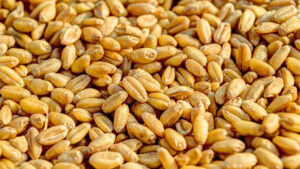
The OKKO Group plans to open a new 60,000-tonne elevator by autumn 2025 and a bioethanol plant in summer 2026, OKKO Group CEO Vasyl Danylyak said in an interview with Tomas Fiala, co-founder of investment company Dragon Capital.
According to him, the company began construction of an 83,000-ton bioethanol plant last year. Only part of its production will be supplied to the domestic market, with the rest intended for export.
“In Ukraine, since May 1 of this year, there have been mandates to add 5% bioethanol to fuel in accordance with European standards, but this share may increase to 10%. Accordingly, after analyzing our market share, we decided to build a plant with a capacity of 83,000 tons. In addition, we worked with American consultants, who are number one in the market, on the format of the plant’s operation. Thanks to this, we chose the best option: it will work partly for our group and partly for export,” said Danylyak.
The CEO emphasized that by the fall of this year, the group of companies plans to complete the construction of a 60,000-ton storage elevator, and in June-July next year, it expects to fully launch the plant.
Danylyak also said that this year OKKO Group closed a deal to buy 17,000 hectares of land in the north of the Ternopil region and the south of the Rivne region, increasing its land bank to 50,000 hectares.
“As of today, we have a total of about 50,000 hectares under cultivation,” the top manager said.
He explained the interest in these regions by the favorable natural and climatic conditions and the best yield indicators compared to other regions.
Danylyak noted that an important component of OKKO’s agricultural portfolio is its partnership with the Gadz-Agro enterprise in the Ternopil region, in which the company acquired a stake in 2023. The enterprise cultivates 26,000 hectares of land and has about 10,000 head of cattle, of which 5,000 are dairy cows. It is also one of the largest horticultural farms in Ukraine, but OKKO decided not to integrate the horticultural part of the business.
OKKO Group unites more than 10 diverse businesses in the fields of manufacturing, trade, construction, insurance, services, and other services. The group’s flagship company is Galnaftogaz, which operates one of the largest petrol station chains in Ukraine under the OKKO brand, with around 400 petrol stations.
The founder and ultimate beneficiary of the group is Vitaliy Antonov.

In January-April of this year, Ukraine increased exports of processed cast iron in physical terms by 37.4% compared to the same period last year, to 574,057 thousand tons from 417,941 thousand tons.
According to statistics released by the State Customs Service (SCS) on Tuesday, during the period in question, exports of pig iron in monetary terms increased by 46% to $226.282 million.
Exports were mainly to the US (83.05% of shipments in monetary terms), Italy (11.34%), and Poland (2.7%).
In the first four months of the year, the country imported 29,000 tons worth $55,000 from Brazil (68.52%) and Germany (31.48%), while in January-April 2024, 15 tons of pig iron worth $35,000 were imported.
As reported, on March 12 of this year, in accordance with a decision by President Donald Trump, the US began imposing a 25% tariff on imports of Ukrainian steel products, except for pig iron.
In 2024, Ukraine reduced exports of processed pig iron in physical terms by 3.4% compared to 2023, to 1 million 290.622 thousand tons, and in monetary terms by 6.1%, to $500.341 million. Exports were mainly to the US (72.64% of shipments in monetary terms), Turkey (8.03%), and Italy (7.30%).
In 2024, the country imported 38 tons of pig iron worth $90 thousand from Germany, while in the same period of 2023, it imported 154 tons of pig iron worth $156 thousand.

In January-April this year, Ukraine reduced exports of semi-finished carbon steel products in physical terms by 24.6% compared to the same period last year, to 440,036 thousand tons.
According to statistics released by the State Customs Service (SCS) on Tuesday, in monetary terms, exports of carbon steel semi-finished products fell by 25.3% to $215.286 million.
The main exports were mainly to Bulgaria (40.65% of supplies in monetary terms), Turkey (18.46%), and Poland (13.59%).
During the period in question, Ukraine imported 3,303 thousand tons of semi-finished products worth $2.687 million, mainly from the Czech Republic (72.47%), Italy (26.26%), and Romania (0.93%).
As reported, in 2024, Ukraine increased exports of semi-finished products made of carbon steel in physical terms by 56.7% compared to 2023, to 1 million 886.090 thousand tons. The main export destinations were Bulgaria (32.06% of shipments in monetary terms), Egypt (18.50%), and Turkey (11.14%).
In 2024, Ukraine imported 306 tons of semi-finished products worth $278 thousand from the Czech Republic (88.13%), Romania (7.19%), and Poland (2.88%), while in 2023, it imported 96 tons worth $172 thousand.

As of May 12, Ukraine had exported 37.064 million tons of grains and legumes since the beginning of the 2024-2025 marketing year (July-June), of which 1.796 million tons were shipped this month, according to the press service of the Ministry of Agrarian Policy and Food, citing data from the State Customs Service of Ukraine.
According to the report, as of May 17 last year, total shipments amounted to 44.214 million tons, including 2.856 million tons in May.
In terms of crops, since the beginning of the current season, 14.467 million tons of wheat (564,000 tons in May), 2.286 million tons of barley (19,000 tons), 10,800 tons of rye (0), corn – 19.755 million tons (1.206 million tons).
Total exports of Ukrainian flour since the beginning of the season as of May 16 are estimated at 61,000 tons (3,300 tons in May), including wheat flour – 57,600 tons (3,200 tons).

The Export Credit Agency (ECA) insured foreign economic contracts of 33 Ukrainian enterprises in January-April 2025, thus securing UAH 5.35 billion in future export revenues, according to the website of the Ministry of Economic Development and Trade.
It is emphasized that during the same period last year, the volume of supported exports amounted to 1.7 billion hryvnia.
“This growth indicates that businesses see the effectiveness of this protection tool. Insurance of export contracts has enabled manufacturers to reduce the risk of non-payment and gain access to bank financing. This helps companies scale up production and enter new markets,” said Deputy Minister of Economy of Ukraine Andriy Telyupa.
During this period, the most active exporters were companies from Lviv (UAH 1.37 billion), Khmelnytskyi (UAH 1.31 billion), and Volyn (UAH 1.12 billion) regions. Ukrainian companies exported furniture, food products, wood, wood products, and processed fruit and vegetables to Poland, the Netherlands, Lithuania, Estonia, the United Kingdom, and other countries.
The largest partners of the ECA among banks during this period were: Creditwest Bank – UAH 109 million in loans issued, Oschadbank – UAH 92.5 million, and Ukrgasbank – UAH 90 million.
The Export Credit Agency of Ukraine (ECA) is a state institution that supports non-raw material exports by insuring the risks of enterprises and banks. The agency insures foreign economic contracts, export credits, bank guarantees, and investment credits against military risks.